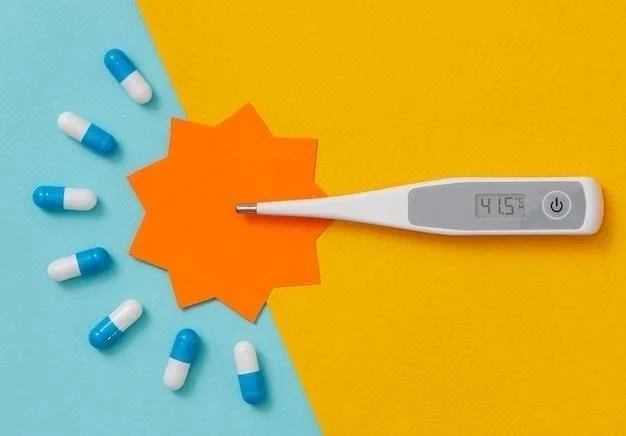Medrol Vs Prednisone

Medrol (Methylprednisolone) vs Prednisone
Medrol (methylprednisolone) and prednisone are both corticosteroids used to treat a variety of conditions, including inflammation, allergies, and autoimmune diseases. They work by suppressing the immune system and reducing inflammation.
Medrol is a stronger corticosteroid than prednisone, so it is typically used in lower doses. It is also available in a variety of forms, including tablets, injections, and eye drops.
Prednisone is a less potent corticosteroid than medrol, so it is typically used in higher doses. It is also available in a variety of forms, including tablets, liquids, and eye drops.
Medrol (methylprednisolone) and prednisone are both corticosteroids used to treat a variety of conditions, including inflammation, allergies, and autoimmune diseases. They work by suppressing the immune system and reducing inflammation.
Corticosteroids are powerful medications that can have a significant impact on the body. They are typically used for short-term treatment of acute conditions, such as an asthma attack or an allergic reaction. However, they can also be used for long-term treatment of chronic conditions, such as rheumatoid arthritis or lupus.
Medrol and prednisone are two of the most commonly prescribed corticosteroids. They are both effective medications, but they have different strengths and side effects. The choice of which medication to use depends on the individual patient and the condition being treated.
In this article, we will discuss the differences between medrol and prednisone, including their strengths, side effects, and uses. We will also provide information on how to take these medications safely and effectively.
Overview of Corticosteroids
Corticosteroids are a class of medications that are used to treat a wide range of conditions, including inflammation, allergies, and autoimmune diseases. They work by suppressing the immune system and reducing inflammation.
Corticosteroids are powerful medications that can have a significant impact on the body. They are typically used for short-term treatment of acute conditions, such as an asthma attack or an allergic reaction. However, they can also be used for long-term treatment of chronic conditions, such as rheumatoid arthritis or lupus.
There are many different types of corticosteroids, and they are available in a variety of forms, including tablets, injections, and inhalers. The type of corticosteroid and the dose that is prescribed will depend on the individual patient and the condition being treated.
Corticosteroids are generally safe and effective medications, but they can have side effects, especially if they are used for a long period of time. Common side effects of corticosteroids include weight gain, fluid retention, high blood pressure, and diabetes.
It is important to take corticosteroids exactly as prescribed by your doctor. Do not take more or less of the medication than prescribed, and do not stop taking the medication without talking to your doctor first.

Overview of Medrol (Methylprednisolone)
Medrol (methylprednisolone) is a corticosteroid medication that is used to treat a variety of conditions, including inflammation, allergies, and autoimmune diseases. It works by suppressing the immune system and reducing inflammation.
Medrol is a potent corticosteroid, and it is typically used in lower doses than other corticosteroids. It is available in a variety of forms, including tablets, injections, and eye drops.
Medrol is effective in treating a wide range of conditions, but it can have side effects, especially if it is used for a long period of time. Common side effects of medrol include weight gain, fluid retention, high blood pressure, and diabetes.
It is important to take medrol exactly as prescribed by your doctor. Do not take more or less of the medication than prescribed, and do not stop taking the medication without talking to your doctor first.
Medrol can be an effective medication for treating a variety of conditions, but it is important to be aware of the potential side effects before starting treatment.
Overview of Prednisone
Prednisone is a corticosteroid medication that is used to treat a variety of conditions, including inflammation, allergies, and autoimmune diseases. It works by suppressing the immune system and reducing inflammation.
Prednisone is a less potent corticosteroid than medrol, and it is typically used in higher doses. It is available in a variety of forms, including tablets, liquids, and eye drops.
Prednisone is effective in treating a wide range of conditions, but it can have side effects, especially if it is used for a long period of time. Common side effects of prednisone include weight gain, fluid retention, high blood pressure, and diabetes.
It is important to take prednisone exactly as prescribed by your doctor. Do not take more or less of the medication than prescribed, and do not stop taking the medication without talking to your doctor first.
Prednisone can be an effective medication for treating a variety of conditions, but it is important to be aware of the potential side effects before starting treatment.
Mechanism of Action
Medrol (methylprednisolone) and prednisone are both corticosteroids that work by suppressing the immune system and reducing inflammation.
Corticosteroids bind to receptors in the cytoplasm of cells, which then triggers a series of events that lead to the suppression of inflammation. Corticosteroids can also inhibit the production of inflammatory mediators, such as cytokines and prostaglandins.
Medrol is a more potent corticosteroid than prednisone, so it can be used in lower doses to achieve the same effect. However, both medications are effective in treating a wide range of conditions.
Corticosteroids are powerful medications that can have a significant impact on the body. They are typically used for short-term treatment of acute conditions, such as an asthma attack or an allergic reaction. However, they can also be used for long-term treatment of chronic conditions, such as rheumatoid arthritis or lupus.
It is important to take corticosteroids exactly as prescribed by your doctor. Do not take more or less of the medication than prescribed, and do not stop taking the medication without talking to your doctor first.
Indications for Use
Medrol (methylprednisolone) and prednisone are both corticosteroids that are used to treat a wide range of conditions, including⁚
- Inflammation
- Allergies
- Autoimmune diseases
- Asthma
- Chronic obstructive pulmonary disease (COPD)
- Rheumatoid arthritis
- Lupus
- Multiple sclerosis
- Inflammatory bowel disease
- Skin conditions
- Eye conditions
Medrol is a more potent corticosteroid than prednisone, so it is typically used in lower doses to achieve the same effect. However, both medications are effective in treating a wide range of conditions.
It is important to note that corticosteroids are not a cure for any of these conditions. They can only help to reduce inflammation and relieve symptoms.
Dosage and Administration
The dosage and administration of medrol (methylprednisolone) and prednisone will vary depending on the individual patient and the condition being treated.
Medrol is typically taken orally, once or twice a day. The usual starting dose is 4-8 mg per day. The dose may be increased or decreased depending on the patient’s response to treatment.
Prednisone is also typically taken orally, once or twice a day. The usual starting dose is 5-10 mg per day. The dose may be increased or decreased depending on the patient’s response to treatment.
It is important to take medrol and prednisone exactly as prescribed by your doctor. Do not take more or less of the medication than prescribed, and do not stop taking the medication without talking to your doctor first.
If you miss a dose of medrol or prednisone, take it as soon as possible. However, if it is almost time for your next dose, skip the missed dose and take your next dose at the regular time.
Medrol and prednisone can be taken with or without food. However, it is best to take the medication with food to reduce the risk of stomach upset.
Potency and Equivalence
Medrol (methylprednisolone) is a more potent corticosteroid than prednisone. This means that it is more effective in suppressing inflammation and reducing symptoms.
The potency of corticosteroids is typically measured in milligrams of prednisone equivalent. This means that 1 mg of medrol is equivalent to 4 mg of prednisone.
Therefore, a dose of 4 mg of medrol is equivalent to a dose of 16 mg of prednisone.
It is important to note that the potency of corticosteroids can vary depending on the individual patient and the condition being treated.
Your doctor will prescribe the lowest possible dose of corticosteroid that is effective in treating your condition.
Side Effects
Medrol (methylprednisolone) and prednisone can both cause side effects, especially if they are used for a long period of time.
Common side effects of medrol and prednisone include⁚
- Weight gain
- Fluid retention
- High blood pressure
- Diabetes
- Osteoporosis
- Cataracts
- Glaucoma
- Muscle weakness
- Stomach upset
- Headache
- Acne
- Hirsutism
Medrol is a more potent corticosteroid than prednisone, so it is more likely to cause side effects;
It is important to talk to your doctor about the potential side effects of medrol and prednisone before starting treatment.
Drug Interactions
Medrol (methylprednisolone) and prednisone can interact with a number of other medications, including⁚
- Blood thinners
- Anticoagulants
- Diabetes medications
- High blood pressure medications
- Cholesterol medications
- Antidepressants
- Antipsychotics
- Seizure medications
- Immunosuppressants
These interactions can increase the risk of side effects, so it is important to tell your doctor about all of the medications you are taking before starting treatment with medrol or prednisone.
Your doctor may need to adjust your dose or monitor you more closely if you are taking any of these medications.
Contraindications
Medrol (methylprednisolone) and prednisone are contraindicated in patients with⁚
- A known allergy to corticosteroids
- A severe infection
- Uncontrolled diabetes
- Uncontrolled high blood pressure
- A history of stomach ulcers
- A history of osteoporosis
- A history of glaucoma
- A history of cataracts
Medrol and prednisone should also be used with caution in patients with⁚
- A history of heart disease
- A history of kidney disease
- A history of liver disease
- A history of mental illness
- A history of thyroid disease
It is important to talk to your doctor about your medical history before starting treatment with medrol or prednisone.
Precautions
Medrol (methylprednisolone) and prednisone should be used with caution in patients with⁚
- A history of heart disease
- A history of kidney disease
- A history of liver disease
- A history of mental illness
- A history of thyroid disease
- A history of stomach ulcers
- A history of osteoporosis
- A history of glaucoma
- A history of cataracts
Medrol and prednisone can increase the risk of these conditions, so it is important to be closely monitored by your doctor if you have any of these conditions.
Your doctor may need to adjust your dose or monitor you more closely if you are taking any of these medications.
Monitoring and Management
Patients taking medrol (methylprednisolone) and prednisone should be monitored closely by their doctor.
Your doctor may order blood tests, urine tests, and other tests to monitor your response to treatment and to check for side effects.
Your doctor may also recommend that you have regular eye exams and bone density scans.
It is important to follow your doctor’s instructions carefully and to report any side effects that you experience.
Your doctor may need to adjust your dose or change your medication if you experience any serious side effects.
Cost Comparison
The cost of medrol (methylprednisolone) and prednisone can vary depending on the dosage, the form of the medication, and the pharmacy where you fill your prescription.
In general, medrol is more expensive than prednisone. A 4 mg tablet of medrol costs about $0.50, while a 5 mg tablet of prednisone costs about $0.25.
However, the cost of treatment with medrol and prednisone is not just the cost of the medication. It also includes the cost of doctor’s visits, blood tests, and other tests that may be needed to monitor your response to treatment and to check for side effects.
Your doctor can help you determine the best course of treatment for your condition and can also help you find ways to save money on your medication.
Brand Names
Medrol (methylprednisolone) and prednisone are both available as generic medications and as brand-name medications.
The brand name for medrol is Medrol.
The brand names for prednisone include⁚
- Deltasone
- Orasone
- Prednisone Intensol
- Rayos
- Sterapred
Your doctor may prescribe a generic or brand-name medication depending on your individual needs and preferences.
Generic Availability
Medrol (methylprednisolone) and prednisone are both available as generic medications.
Generic medications are copies of brand-name medications that have the same active ingredients, strength, and dosage.
Generic medications are typically much cheaper than brand-name medications.
Your doctor may prescribe a generic or brand-name medication depending on your individual needs and preferences.
If you are prescribed a brand-name medication, you can ask your pharmacist if a generic equivalent is available.
Storage and Handling
Medrol (methylprednisolone) and prednisone should be stored at room temperature, away from heat and moisture.
Do not store these medications in the bathroom or in a car.
Keep these medications out of the reach of children and pets.
If you have any questions about how to store or handle these medications, talk to your pharmacist.

Patient Education
If you are taking medrol (methylprednisolone) or prednisone, it is important to follow your doctor’s instructions carefully and to report any side effects that you experience.
Here are some important things to remember about taking these medications⁚
- Take your medication exactly as prescribed by your doctor.
- Do not take more or less of the medication than prescribed.
- Do not stop taking the medication without talking to your doctor first.
- Take your medication with food to reduce the risk of stomach upset.
- Avoid drinking alcohol while taking these medications.
- Tell your doctor about all of the other medications you are taking, including over-the-counter medications, vitamins, and herbal supplements.
- Tell your doctor if you have any medical conditions, including heart disease, kidney disease, liver disease, mental illness, or thyroid disease.
- Tell your doctor if you are pregnant or planning to become pregnant.
- Tell your doctor if you are breastfeeding.
If you have any questions about medrol or prednisone, talk to your doctor or pharmacist.
Clinical Trials
Medrol (methylprednisolone) and prednisone have been studied in a number of clinical trials.
These trials have shown that both medications are effective in treating a wide range of conditions, including inflammation, allergies, and autoimmune diseases.
Medrol has been shown to be more potent than prednisone, but it is also more likely to cause side effects.
The choice of which medication to use depends on the individual patient and the condition being treated.
Your doctor can help you determine the best course of treatment for your condition.
Conclusion
Medrol (methylprednisolone) and prednisone are both corticosteroids that are used to treat a wide range of conditions.
Medrol is more potent than prednisone, but it is also more likely to cause side effects.
The choice of which medication to use depends on the individual patient and the condition being treated.
Your doctor can help you determine the best course of treatment for your condition.
It is important to take these medications exactly as prescribed by your doctor and to report any side effects that you experience.
References
- Medrol (methylprednisolone) vs prednisone
- Methylprednisolone
- Methylprednisolone
- Corticosteroids